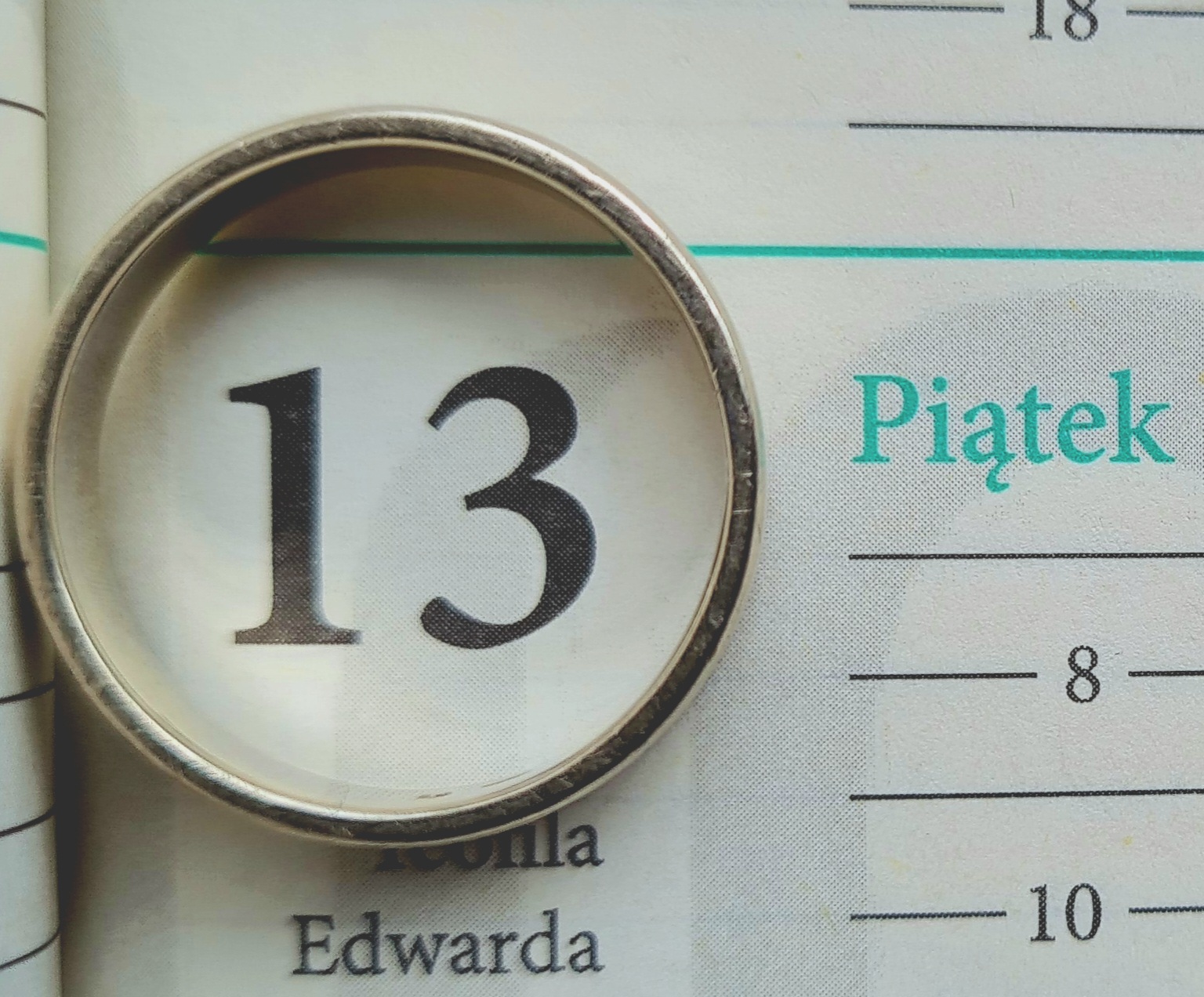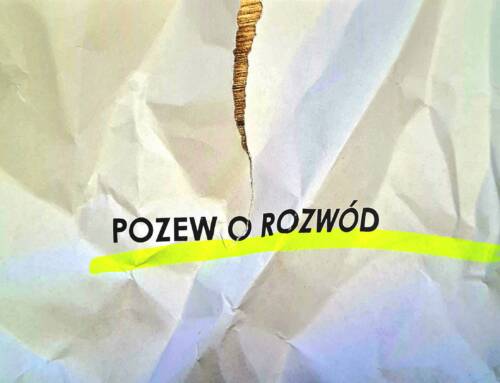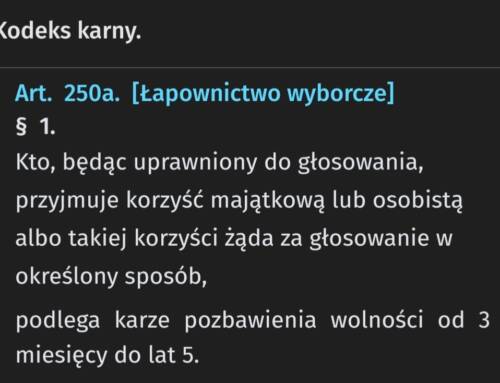in matters concerning the extension of the validity of a issued visa or a stay covered by that visa, granting a temporary residence permit, a permanent residence permit or a long-term residence permit in the European Union in accordance with art. 7, section 1, point 1 of the Act of December 12, 2013 on foreigners (Journal of Laws of 2018, item 2094, as amended).
HOW TO CORRECTLY FILL IN THE APPLICATION
When filling in the application for permission to legalize your stay remember to:
- Fill it legibly in Polish;
- Complete all the required fields of the application in accordance with the facts;
- Fill it in capital letters entered in the appropriate boxes;
- If you have provided different personal data in the past – inform about it in justification;
- Provide the place of actual stay where correspondence will be received;
- In the part concerning criminal records indicate information about judgements issued against you and in the event of uncertainty as to judgements issued, indicate that the procedure remains in progress (Note: payment of fines does not prove the fact that no criminal proceedings were initiated and no judgement was issued in the case);
- In the part concerning pending criminal proceedings or petty offences proceedings provide information about all pending proceedings (e.g. not accepted fines)
- Attach proof of payment of the stamp duty to the application;
- Attach photographs taken in the appropriate format to the application;
- sign the application with a handwritten signature and enter the full name using Latin alphabet;
Note: in the case of applying for a temporary residence permit for the purpose of family reunification for a foreigner residing outside the borders of the Republic of Poland (Article 159(1) of the Act on foreigners), the application, should be signed by the foreigner living in Poland, and not a family member for whom the permit is to be granted;
- Present a valid travel document. In particularly justified cases, when you do not have a valid travel document and you are unable to obtain it, you can submit other document confirming your identity; NOTE: when submitting the application you should write detailed explanation why you are unable to obtain a travel document and list the actions that you have taken to get it. You may be also required to provide documents confirming this.
- Attach any document that can confirm the information contained in the application and contribute to the immediate consideration of the case;
- If you have any doubts – ask the voivodship office worker for help or go to NGOs providing assistance to foreigners. Information on the activities of these organizations can be found on information boards or in brochures available at the voivodship office.
CONDITIONS FOR THE STAY OF FOREIGNERS ON THE TERRITORY OF THE REPUBLIC OF POLAND
A foreigner during the stay on the territory of the Republic of Poland is obliged to have a valid travel document and documents authorizing him/her to stay in the territory of the Republic of Poland, if required.
A foreigner may travel and stay in the territory of the Schengen states for a period not exceeding 90 days within any 180-day period if he/she has a valid long-term visa or a valid residence card issued by the Member State of the Schengen area and:
- has a valid travel document authorizing him/her to cross the border, valid for at least three months after the intended date of departure from the Schengen area (in justified and urgent cases, this criterion may be ignored) and issued within the period of the last 10 years,
- can justify the purpose and conditions of the intended stay and
- has sufficient resources or and the ability to obtain them legally, and
- is not considered a threat to public order, internal security, public health or international relations of any of the Member States, in particular, he/she has not been entered on this basis to national databases of the Member States for the purposes of refusing entry.
Furthermore, the foreigner’s data should not appear on the national list of alerts for refusal of entry of a Member State.
The states of the Schengen area include: Austria, Belgium, Denmark, Finland, France, Greece, Spain, Luxembourg, the Netherlands, Germany, Portugal, Sweden, Italy, Estonia, Lithuania, Latvia, Malta Poland, Czech Republic, Slovakia, Slovenia, Hungary, as well as Switzerland, Liechtenstein, Norway and Iceland (the last 4 countries are Schengen countries not belonging to the EU).
It should be emphasized that: Great Britain, Ireland, Cyprus, Croatia, Bulgaria and Romania are EU Member States which do not belong to the Schengen area.
Holders of a residence permit, referred to in Article 1(2) (c) of the Council Regulation (EC) No 1030/2002 of 13 June 2002 laying down a uniform format residence permits for third-country nationals (OJ L 157, 15.06.2002, p. 1, as amended), with an annotation „ICT”, issued by another Member State of the EU, including a country not belonging to the Schengen area, may enjoy the mobility within the territory of the Republic of Poland for a period not exceeding the period of validity of this residence permit, consisting in performing work as a manager, specialist or internship employee in the host entity belonging to the same group of enterprises having their registered offices in the territory of Poland, including short-term mobility for a period of up to 90 days in any 180-day period in the territory of Poland, notwithstanding the possibility of using this mobility in other Member States of the EU, under certain conditions (see point 4.6.4).
Holders of residence permit referred to in art. 1, point 2 (a) and Council Regulation (EC) No. 1030/2002 of 13 June 2002 establishing a uniform format for residence permits for third-country nationals (O.J. L 157 of 15 June 2002 page 1 as amended) or a long-term visa issued by another Member State of the European Union including a country not belonging to the Schengen area with an annotation:
- „Student” may enjoy the mobility on the territory of the Republic of Poland in order to continue or supplement studies undertaken on the territory of another European Union member state within a period of 360 days unless this period exceeds the validity period of the residence permit held under certain conditions (see point 4.6.7).
- „Scientist ” may enjoy the mobility on the territory of the Republic of Poland in the period not exceeding the validity period of this residence permit consisting in conducting part of scientific research or development works in a research unit based in Poland including short-term mobility for up to 180 days in any period of 360 days on the territory of Poland regardless of the possibility of using this mobility in other EU Member States under certain conditions (see point 4.6.9).
A foreigner who is a member of the family of a holder of residence permit referred to in art. 1, point 2 (a) of Regulation No. 1030/2002 or a long-term visa with the annotation „scientist” may also enjoy the mobility on the territory of the Republic of Poland including short-term mobility within 180 days in any period of 360 days on the territory of Poland regardless of the possibility of using this mobility in the other EU Member States under certain conditions (see 4.6.13).
A foreigner is obliged to leave the territory of the Republic of Poland before the expiry of the period of stay covered by a Schengen visa or a national visa and before the expiry of that visa, if he/she does not have the permit to continue staying in this territory.
A foreigner residing on the territory of the Republic of Poland under an international agreement on the obligation of visa requirement or unilateral abolition the obligation of visa requirement or to whom partial or total abolition visa requirement applies, in accordance with Council Regulation (EC) No 539/2001 of 15 March 2001 listing the third countries whose nationals must be in possession of visas when crossing the external borders and those whose nationals are exempt from that requirement, is obliged to leave the territory before the expiry of the period of the visa waiver provided for in the international agreement, the unilateral abolition of the visa requirement or in the above Regulation, if he/she does not have the permit to continue to stay in the territory.
A foreigner is obliged to leave the territory of the Republic of Poland before the expiry of a temporary residence permit, if he/she does not have the permit to continue to stay in that territory, in particular, has not obtained another temporary residence permit or a permanent residence permit or a long-term resident’s EU residence permit in the territory of the Republic of Poland.
A foreigner is obliged to leave the territory of the Republic of Poland within 30 days from the date on which the decision refusing extension of a Schengen visa or a national visa, a temporary residence permit, a permanent residence permit or a long-term resident’s EU residence permit, the decision to discontinue the proceedings in these cases or the decision to withdraw his/her temporary residence permit, a permanent residence permit or long-term resident’s EU residence permit or the decision to withdraw permission to stay for humanitarian reasons – has become final, and in the case of a decision issued by a higher body, from the date on which the final decision was delivered to a foreigner. Note: in the case of complying with this requirement there is no need to issue the decision on obligation to return and to issue the entry ban.
Stay of a foreigner within the territory of the Republic of Poland in this period shall be deemed legal, unless the request for an extension of a Schengen visa or national visa or granting him/her a temporary residence permit, a permanent residence permit or a long-term resident’s EU residence permit was filed after the expiration of his/her legal staying in the territory.
The above principles shall not apply in the case when before issuing the decision to refuse the extension of a Schengen visa or a national visa to a foreigner, granting him/her a temporary residence permit, a permanent residence permit or a long-term resident’s EU residence permit or issuing the decision to discontinue the proceedings in these cases, the proceedings were initiated against the foreigner concerning the obligation to return or the decision obliging him/her to return was issued.
Stay on the Polish territory without the required visa, a temporary residence permit, a permanent residence permit or a long-term resident’s EU residence permit, as well as performing work or starting a business enterprise in violation of applicable regulations may result in the decision imposing the obligation to return with a ban on re-entry to Polish territory and the territory of other countries of the Schengen area for a period of 6 months to 3 years.
REQUIREMENTS RELATED TO REQUESTS, DOCUMENTS, EXPLANATIONS, AND STATEMENTS
Applications, submissions and documents on matters concerning the legalization of stay of foreigners on the territory of the Republic of Poland should be:
- written in Polish;
- originals or copies certified as being true copies (instead of the original document, a party may submit a copy of the document, if it is certified as true copy by a notary or by a representative of the party who is a an attorney, solicitor, patent attorney or a tax adviser or an authorised employee of the authority conducting the proceedings (voivode) to whom the original document along with the copy was shown – does not apply to identity documents (travel));
- translated into Polish by a sworn translator – in the case of documents drawn up in a foreign language, serving as proof in the proceedings, e.g. foreign acts of the marital status, contracts etc. Note: the obligation to provide translation does not apply to travel document.
DEADLINE FOR ARRANGING THE CASE
In accordance with applicable provisions of law, settlement of the case:
- Requiring investigation – should take no more than a month,
- Particularly complicated – should take no more than two months from the date on which the proceedings were initiated,
- In appeal proceedings – should take no more than one month from the date of receipt of the appeal.
Settlement of the case concerning granting of a temporary residence permit for the purpose of the intra-corporate transfer and a temporary residence permit for the purpose of using the long-term mobility temporary residence permit for the purpose of long-term mobility of a management employee, specialist or internship employee under intra-corporate transfer should be completed within a period of 90 days from the date of initiation of the proceedings. If the application do not include all necessary documents, the above mentioned deadline shall be suspended until the date of receipt by the voivode.
The settlement of a matter regarding the granting of a temporary residence permit for the purpose of studying at upper education institution, temporary residence permit for the purpose of conducting scientific research, temporary residence permit for the internship employee and temporary residence permit for a volunteer should be completed within 60 days of submitting the complete application. If the application does not include all necessary documents the above-mentioned deadline shall be suspended until the date of receipt of said documents by the voivode
Settlement of the case concerning granting of a permanent residence permit or a long-term resident’s EU residence permit should be completed no later than within 3 months from the date of initiation of the proceedings, in appeal proceedings – should be completed within 2 months from the date of receipt of the appeal.
Prior to issuing a decision granting: a temporary residence permit /a permanent residence permit /a long-term resident’s EU residence permit – the competent voivode is obliged to ask the commander of the Border Guard, the Voivodship Police Commander, the Chief of the Internal Security Agency and, if necessary, also other bodies, to transfer information on whether the entry and stay of the foreigner on The territory of the Republic of Poland may pose a threat to national defence or security or public safety and order. This requirement does not apply to children who are under the age of 13 on the day when the application is submitted.
Having regard to the fact that the above authorities are obliged to provide the requested information within 30 days, one should expect that the proceedings will last more than 30 days.
The authority of first or second instance is obliged to notify the party of any case not settled within the above deadlines, giving reasons for the delay, indicating a new deadline for settling the case and informing the party of their right to file reminders.
POWER OF ATTORNEY
A party may act by proxy, unless the nature of the activity requires personal action. The proxy can be a natural person having capacity to perform acts in law.
- the power of attorney should be given in writing, in the form an electronic document or entered into the minutes ;
- the power of attorney includes an original or officially certified copy of the power of attorney; in the files
- along with the power of attorney, the case file must include a proof of payment of stamp duty in the amount of PLN 17;
- in the case of special powers of attorney (granted for proceedings listed in detail) the granted power of attorney should authorise representation of the foreigner in a particular proceeding both before the competent voivode and the Head of the Office for Foreigners (if the foreigner wants to be represented also in the appeal proceedings).
Submission by a foreigner residing in the territory of the Republic of Poland of a request for granting a temporary residence permit for the purpose of the family reunification on behalf of a family member requires a written consent of that family member or his/her statutory representative, unless the applicant is his/her statutory representative. Giving the above-mentioned consent is tantamount to granting the foreigner residing in the territory of Poland the power of attorney to act on behalf of a family member in a given proceeding.
DELIVERING CORRESPONDENCE
All letters (notifications, calls, decisions, provisions etc.) are delivered against receipt by a postal operator or by the officials of the authority of first or second instance or other authorised persons or bodies.
Letters are delivered to the address indicated by the party or to any place where they can be found.
Letters to foreigners who are deprived of their liberty, are delivered by the administration of the penitentiary in which they are residing.
Letters are also delivered by electronic communication means within the meaning of art. 2, point 5 of the Act of July 18, 2002 on the provision of electronic services if a party or other participant in the proceedings meets one of the following conditions:
He/she will submit the application in the form of an electronic document by the electronic delivery box of the public administration body;
He/she will apply to the public administration authority for such delivery, and will indicate electronic address to the public administration body;
He/she will consents to the delivery of letters in the proceedings by means of these means and will indicate electronic address to the public administration body.
The public administration body may ask the party or other participant of the proceedings to consent to delivery of letters in the form of an electronic document in other categories specified by the authority of individual cases handled by that authority.
The public administration body may request consent to the delivery of letters via this electronic communication means sending this request via electronic communication means to the electronic address of the party or other participant in the proceedings. The above-mentioned article does not apply art. 46 § 3-8 of the Code of Administrative Procedure.
If the party or other participant in the proceedings resigns from the delivery of letters via electronic communication means the public administration body delivers the letter in the manner specified for the letter in a form other than the form of an electronic document.
CHANGE OF ADDRESS
In the course of proceedings, the parties (foreigners) and their representatives and proxies are obliged to inform the authority before which their case is pending about any change to the address. During the proceedings, letters are always sent to the address for delivery which was last indicated to the authorities.
- In the case of negligence of the above-mentioned obligation, the submission of the letter to the previous address is considered effective (e.g. in the case of such delivery of the decision the time limit for filling appeal shall run even if the foreigner or his/her representative actually did not receive this decision due to a change of address)
- ABSENCE OF ADDRESSEE: in the absence of the addressee at the address indicated, a letter is delivered, against receipt, to an adult member of the household, a neighbour or a caretaker, if they undertake to give the letter to the addressee. The delivery of a letter to a neighbour or a caretaker shall be notified to the recipients by placing a notice in a mailbox or if it is not possible, at the door of the apartment.
LETTERS ARE DELIVERED:
- To the Party, i.e. the foreigner, at the address indicated by him/her, and when he/she acts through a representative (e.g. guardian) – to that representative.
- The party is obliged to acknowledge receipt of the letter with his/her signatures indicating the date of receipt. If the party evades delivery confirmation, the person serving the letter will determine the date of service on his/her own and will indicate the person who received the letter and the reason for the lack of signature.
- If the party refuses to accept the letter sent by mail or delivered in another way, the letter will be returned to the sender with a note on refusal of acceptance and the date of refusal. In this case, it is considered that the letter was delivered on the day of refusal of its acceptance by the addressee.
- To the Representative: If the party has appointed a representative, the letters shall be delivered to the representative. If several representatives have been appointed, the Party shall appoint one of them as competent for the service and notify the authority conducting the proceedings about this fact. If the foreigner fails to appoint such a representative, the letters shall be delivered to only one representative. The same rules of acknowledgement of receipt of letters apply to the representative and the party.
IN THE CASE OF FAILURE TO DELIVER THE LETTER IN A WAY INDICATED ABOVE:
- The postal operator keeps the letter for a period of 14 in its post office – if the letter is to be delivered by mail;
- The letter is to be submitted for a period of 14 days at the office of the competent municipality (city) – if the letter was delivered by an employee of the municipal office (city), or an authorized person or body.
The notice of leaving the letter with information about the possibility of collecting it within 7 days from the date of leaving the notice is placed in the mailbox, or, if it is not possible, at the door of the addressee’s apartment, his/her office or any other room in which the addressee performs its professional activities, or in a conspicuous place at the entrance to the addressee’s property.
In the case of failure to collect the letter in the above time, another notice is left stating the possibility of collecting the letter no later than 14 days from the date of the first notice.
Delivery shall be deemed effective at the end of the last day of the above-mentioned period, and the letter will be kept in the case files.
ELECTRONIC DELIVERY
In order to deliver a letter in the form of an electronic document the public administration body sends to addressee’s e-mail address a notification containing the following:
1) An indication that the addressee may receive a letter in the form of an electronic document;
2) An indication of the electronic address from which the addressee may download the letter, and under which he/she should confirm the delivery of the letter;
3) Instruction on the method of receipt of the letter, and in particular the method of identification at the indicated electronic address in the ICT system of the public administration body, as well as information on the requirement to sign the official acceptance certificate in a specific manner.
In the case of failure to collect the letter in the form of an electronic document a public authority body, after 7 days from the date of dispatch of the notice, sends repeated notice on the possibility of receiving the letter.
In the event of failure to collect the letter the delivery shall be deemed to have been effected after 14 days from the date of sending the first notification
DELIVERING CORRESPONDENCE IN THE CASE OF A TRIP ABROAD
- In the case of a trip abroad, except for a trip to another EU Member State, one should indicate a person who resides in Poland and will receive correspondence on the foreigner’s behalf (the so-called representative for handling the mail in the country) and notify about this fact the authority conducting the proceedings, unless delivery is effected via electronic communication means. In the case of failure to comply with this obligation, the letter shall be deemed delivered to the current address.
- The party residing abroad or having its registered office abroad, if it has not appointed a representative to conduct the case who resides in the country, or delivery is not effected via electronic communication means, is obliged to indicate a representative responsible for handling mail in Poland. In the case of failure to indicate a representative for service in Poland letter to the party will be left in the case files with the effect of service.
REQUIREMENT OF KEEPING THE DEADLINE
Wnioski i podania sporządzone w języku polskim składa się w określonym dla dokonania danej czynności terminie.
Termin do dokonania określonej czynności uważa się za zachowany, jeżeli przed jego upływem pismo zostało:
- Sent in the form of an electronic document to the public administration body and the sender received the official confirmation of receipt;
- Posted at the Polish post office of the designated operator within the meaning of the Act of 23 November 2012-Postal Law;
- Submitted to the Polish consular office;
- Submitted by a soldier at the headquarters of a military unit;
- Submitted by a crew member to the ship’s captain;
- Submitted by a detained person to the administration of a penal institution;
- Submitted by a foreigner placed in a guarded centre or in an arrest for foreigners to the administration of this centre or arrest.
Letters can also be submitted directly to the authority examining the case.
The designated operator within the meaning of the Act – Postal Law is Poczta Polska Spółka Akcyjna.
Furthermore, the date of a given activity shall be:
- in the case of delivery by a foreign postal service – the date of receipt by the Polish postal service of the designated operator (date of postmark of the Polish postal service);
- in the case of delivery by other postal operators than the designated operator (Poczta Polska Spółka Akcyjna) or by the courier company (letter posted both in Poland and abroad) – the date of receipt by the authority.
In the case of failure to meet the deadline prescribed in the call, a foreigner may, within 7 days following expiration of causes of the failure to meet the deadline, file a request to restore the deadline. The foreigner should be able to substantiate that the failure to meet the deadline was not due to his/her fault. At the time of the request payment of request, the foreigner should supplement the documents that were listed in the call or make the activities listed therein.
GETTING ACCESS TO THE CASE FILE
- At any stage of the proceedings the party has the right to inspect the case files, make notes, copies (e.g. photos) or duplicates. This right applies also after the end of the proceedings.
- The party may request to authenticate duplicates or copies of the case files, or to be given certified copies of the case files, if it is justified by the party’s important interests.
- Stamp duty for the certificate of conformity for a duplicate or a copy of the document requested from case files for each full or started page amounts to PLN 5.
- The above-mentioned principles shall not apply to case files containing information classified as „secret” or „top secret”, as well as to other files that the public administration authority will exclude due to important state interests.
- Active participation in the proceedings. Public administration authorities are obliged to ensure active participation at each stage of the proceedings for the parties and, prior to the issuing of the decision, to make it possible for them to express their opinion on the evidence and materials collected, as well as requests submitted.
- The party may familiarize themselves with the case evidence, supplement the application submitted and make a statement to the minutes.
STAMP DUTY
Obowiązek zapłaty opłaty skarbowej za poszczególne formy legalizacji pobytu powstaje
z chwilą złożenia wniosku do wojewody. Opłatę skarbową uiszcza się na rachunek właściwego organu podatkowego, którym jest wójt (burmistrz, prezydent miasta). Składający wniosek lub inne podanie zobowiązany jest załączyć dowód zapłaty należnej opłaty skarbowej.
Opłacie skarbowej podlega m. in.:
- Granting temporary residence permit – PLN 340
- Granting permit for temporary residence and work – PLN 440
- Granting permit for temporary residence for the purpose of performing work in a profession requiring high qualifications – PLN 440
- Granting permit for temporary residence for the purpose of intra-corporate transfer – PLN 440
- Granting a temporary residence permit for the purpose of long-term mobility of a managerial, specialist or internship employee as part of an intra-corporate transfer – PLN 440
- Granting temporary residence permit for the purpose of seasonal work – PLN 170
- Granting permanent residence permit – PLN 640
- Granting long-term resident’s EU residence permit – PLN 640
- Granting extension of a national visa – PLN 406
- Granting optional extension of the Schengen visa – EUR 30
- Decision other than the above, to which the provisions of the Code of Administrative Procedure apply – PLN 10
- Issuance of a certificate – PLN 17
- Submission of a document confirming the power of attorney or its extract, excerpt or copy – PLN 17
If the party does not pay the stamp duty when submitting an application, the authority conducting the proceedings shall fix a deadline to pay this amount. This deadline may not be less than 7 days and more than 14 days. If the amount due is not settled within the specified time limit, the application is returned. A detailed list of items subject to stamp duty, its rate and exemption can be found in the Annex to the Act of 16 November 2006 on stamp duty (uniform text, Journal of Laws of 2016 item 1827, as amended)
RETURN OF STAMP DUTY
The return of stamp duty is made at the request of the party in situations where despite the payment of stamp duty there has been no official activity, and no certificate or permit have been issued. Stamp duty is not refundable after five years from the end of the year in which the payment was made. Pursuant to Article 12 (1) of the Act quoted above, the tax authority competent in matters of stamp duty is the commune head (mayor, city president).



















